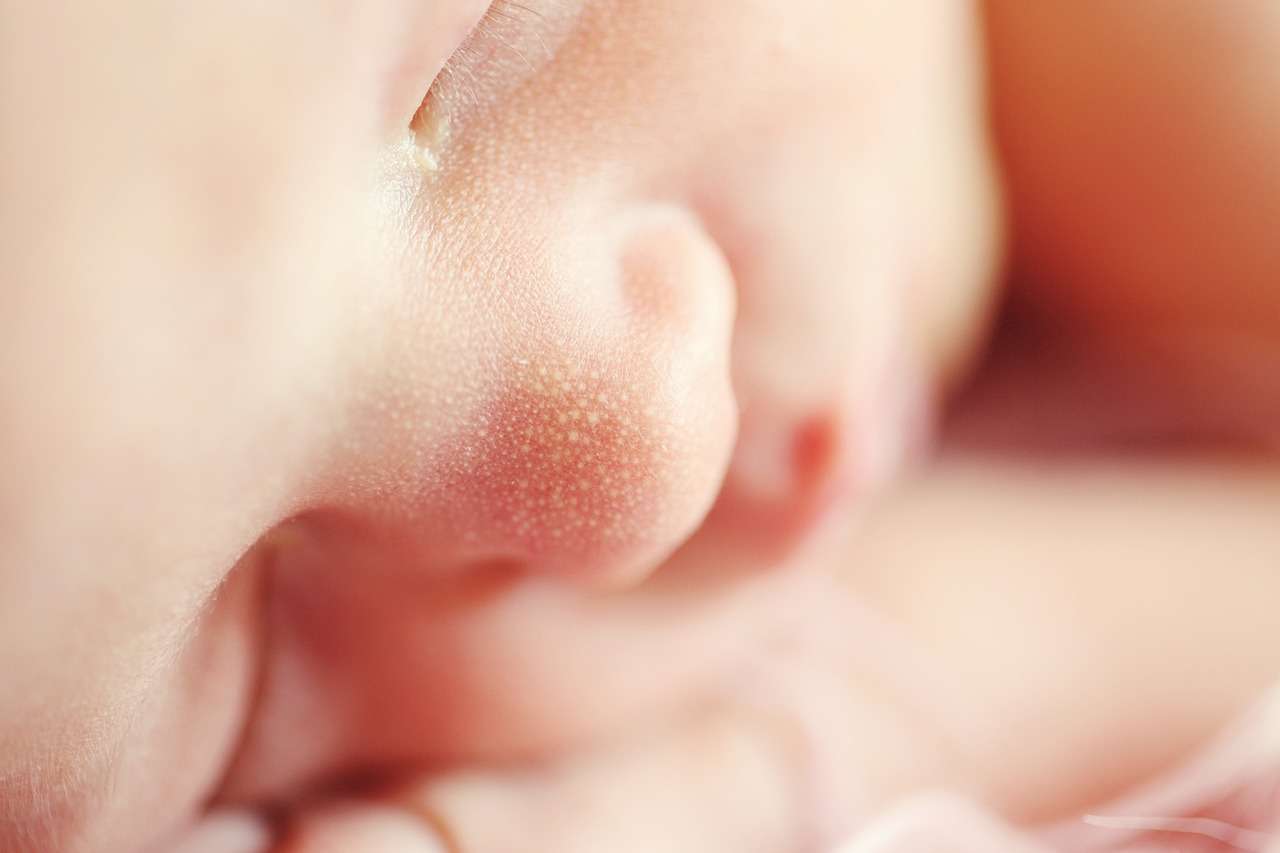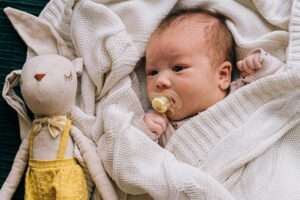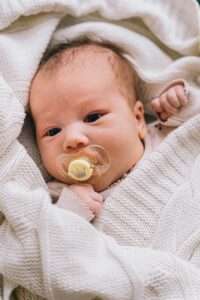How to Know If a Newborn Is Too Hot – Essential Tips for Parents
- Dr Owais Rafiq
- November 4, 2024
- 2:03 pm

How to Know If a Newborn Is Too Hot
Newborns are more sensitive to temperature changes compared to adults. Their body keeps adapting to life outside the womb and never really gets to develop ways of regulating their body temperature properly. For this reason, they are sensitive to overheating especially when dressed in too many layers or kept in overly warm environments.
One can ensure that a newborn baby is kept at his or her comfortable temperature as this enhances a person’s health and well-being. Besides turning miserable, overheating babies can act as a catalyst for the extremely serious risks like sudden infant death syndrome (SIDS) associated with infant mortality.

In this article, learn how to recognize signs of overheating in your newborn baby and some simple practical steps to keep them at ease. They range from simple information about first-time parents to reminders of how to monitor and control your baby’s temperature to mention but a few; it is a must-have for every parent.
Why Is It Important to Monitor a Newborn’s Temperature?
A baby’s ability to control their body heat simply put is not as developed as even a grown man or a child, making babies more susceptible to temperature fluctuations. If a baby is too hot, conditions like heat rash, heat exhaustion, dryness and in extreme occurrences, heat stroke are naturally experienced.
And finally, overheating has been found to cause SIDS particularly where the baby sleeps. For these reasons, not having your newborn too hot becomes very important, especially in the initial months after birth.

Understanding Early Signs That Your Newborn Is Too Hot
Often as parents we ask ourselves if our baby is too hot or maybe too cold. Well, babies do not have the capability of expressing themselves when they are uncomfortable. So, the newborn lacks any severe signals and turns to subtle messages within the body for your attention.
Here are some of the common signs that your newborn may be too hot:
- Excessive Sweating: Though babies do not perspire like humans, they excessively drool in case they feel overheated. The clothes too become wet with sweat.
- Flushed Skin: This is the first indication of overheating in an infant. The skin may appear flushed or red or feel warm.
- Fast or Rapid Breathing: A new baby may breathe fast as their body tries to cool itself. Labored or heavy breathing also indicates overheating.
- Fussiness or Irritability: If your baby is acting more cranky than normal and you cannot seem to make your baby happy, then this is a sign that he or she requires to be cooled down. If a baby becomes hot they will cry.
- Heat Rash: If your baby is having some red bumps around the neck, chest or diaper area then your baby must be too hot. This is affectionately referred to as heat rash in which sweat gets clogged into the skin to cause irritation.
- Lethargy or Unresponsiveness: In extreme instances, the baby may begin to overheat, which will make him or her less active than he or she usually is. This is a sign which should not be ignored and requires as much attention as possible.
How to Check Your Baby’s Temperature
When you are monitoring to ensure that your baby is warm, you check their temperature by touch sometimes with thermometer support. If you check the temperature by touch, you check the nape of the neck or chest. Hands and feet are naturally cooler and not such good indicators of the overall body temperature of the baby. If the nape of their neck or chest is warm or wet to the touch then, they are most likely overheating.
If you even feel that your newborn’s body temperature is high, you can estimate it by using the digital thermometer, which will show the actual temperature. In this point of view of the doctors, it clearly emerged that the normal temperature of a baby should be around 97.9 F to 99 F which is either above the fever range or overheating.
Preventing Overheating in Newborns
The good news is that overheating is pretty easy to prevent with just the right precautions.
Just follow these tips, and you’ll make sure your baby feels comfortable and safe:
- Dress Your Baby in Light Layers: A general rule is to dress your baby in one more layer than you’re comfortable wearing. This should be absolutely free of heavy fabrics and too many layers, which usually make your baby hot within minutes.
- Monitor the Room Temperature: It should be at around 68°F to 72°F room temperature for an infant. Use a room thermometer so you know if it’s too hot, then adjust the place accordingly.
- Do Not Over bundle: One of the effective ways of comforting a baby is through swaddling; however, do not overbundle an infant. Swaddle the baby using light, airy fabrics that will not lead to overheating; avoid thick blankets or improperly wrapped babies.
- Air circulation: Ventilation of the air in a room where the baby spends time will help regulate the temperature. One can use a fan for air circulation without having the fan blow directly on the baby.
- Be careful with sun exposure: Whenever one is taking the baby outdoors, make sure he or she stays in the shade, and make sure to have your baby dressed in light, airy clothes. The sun’s heat can shoot up your baby’s temperature very fast.
- Limit Heat-Producing Devices: Do not put your baby close to any heat sources such as heaters, radiators or space heaters. This may make the room too warm for your baby and raise his body temperature. This might make the room hot for your baby and increase his body temperature.

Seasonal Considerations for Baby’s Comfort
It would be good to take into account the fluctuation in temperature for the season and change the way you care for your baby. During warm seasons, you should dress your little one in the lightest clothing possible, with loose-fitting lines so that the air circulates well around him and cool the room with a fan or air conditioner.
In winter, keeping them warm is important without dressing the child in too many layers or heavy blankets. Layering allows you to add or remove layers as needed to stay comfortable.
When to Seek Medical Help
Even though the baby will sometimes feel warm, the consistent overheating may increase the severity. So, monitor and seek a physician’s care if your baby appears to have severe lethargy, unresponsiveness, or has a fever over 100.4°F.
Heat exhaustion or heat stroke can result from prolonged periods of high body temperature; it is serious, and a professional doctor should be consulted in this regard.
FAQs
-
Can my newborn be too hot sleeping?
Yes, a baby can be too hot when sleeping and sleeping too warmly increases a baby’s risk of SIDS. Use a room with a temperature between 68°F and 72°F and avoid heavy blankets or swaddles. Dress your baby in loose-fitting light sleepwear and check on them often.
-
What should I do if my infant develops a heat rash?
If your little one gets a heat rash, on their skin area that’s all red and irritated due to the warmth or humidity in the surroundings; try to keep them comfortable and dry by dressing them in breathable clothes rather than tight ones that might worsen the rash condition further.
Once the skin cools down with care and clothing choices; the rash should gradually improve on its own over time. It’s always wise to consult your child’s doctor if it persists for thorough guidance and reassurance.
-
Can my newborn overheat in a car seat?
Car seats can trap heat, especially if the weather becomes warm. Ensure the car is well-ventilated, and do not overdress your baby at any given time of the car ride. If you are lucky enough to bring other shades that would block the direct sunlight from the baby’s seating area.
-
Is it possible for my infant to get too hot in a car seat?
During hot weather conditions car seats can get warm and uncomfortable for your baby; make sure the car is properly ventilated and avoid dressing your one during the journey to keep them comfortable and safe from direct sunlight by using shades, in the seating area.
Dr Owais Rafiq
Subscribe to Dr Owais YouTube channel
For parenting advice, child health, symptoms, causes and treatment of illness in children.





